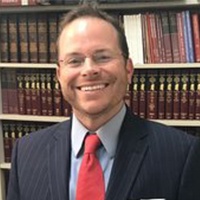Mound Bayou DUI-DWI Lawyer, Mississippi
Sponsored Law Firm
-
 x
x

Click For More Info:
-
Smith, Murphy & Dobbs, LLC
1109 Van Buren Ave Oxford, MS 38655» view mapAccident & Injury and Criminal Defense Smart, Efficient, Precise
Fair legal work for fair compensation. We are straight-forward in our communications with clients and return all emails and phone calls within twenty-four (24) hours.
800-894-6061
Not enough matches for Mound Bayou DUI-DWI lawyer.
Below are all Mound Bayou Criminal lawyers.
John C. Cox
✓ VERIFIEDAccident & Injury, Divorce & Family Law, Estate, Criminal, Real Estate
The Oldest Law Firm in Cleveland, Mississippi
A native of Cleveland , John C. Cox has been practicing law in his hometown since 1999. John began work as an associate for his late father and cous... (more)
Jeffrey J Padgett
DUI-DWI, Criminal, Personal Injury, Car Accident, Accident & Injury
Status: Inactive
Arthur Hugo Calderon
Litigation, Divorce, Criminal, Civil & Human Rights, Medical Malpractice
Status: In Good Standing Licensed: 13 Years
Arthur Hugo Calderon
Litigation, Family Law, White Collar Crime
Status: In Good Standing Licensed: 13 Years
Michael Stephen Carr
Workers' Compensation, Criminal, Civil Rights, Personal Injury
Status: In Good Standing
Michael Stephen Carr
Government, Employment, Criminal, Accident & Injury
Status: In Good Standing Licensed: 19 Years
 Joseph Murphy Oxford, MS
Joseph Murphy Oxford, MS Practice AreasExpertise
Practice AreasExpertise

